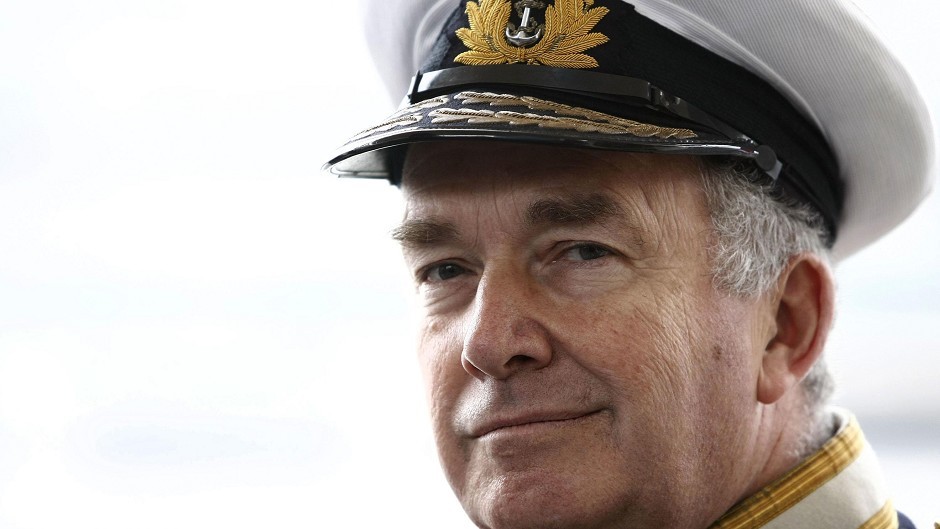A former head of the Royal Navy has called on the UK Government to “come clean” and admit a lack of money is delaying the frigate building programme on the Clyde.
Admiral Lord West of Spithead maintained that the Ministry of Defence had effectively “run out” of cash and warned a “steady drum beat” of orders was necessary to keep high-tech industries going.
The Labour peer, first sea lord from 2002 to 2006, made the remarks when he appeared before the Commons defence committee at Westminster yesterday.
Claims have been made that construction of the eight new Type-26 warships is being put back until at least 2018, risking jobs and skills.
However, the Government has insisted it remains committed to shipbuilding on the Clyde and, in April, Defence Minister Philip Dunne confirmed the plan to spend £8billion on the anti-submarine vessels over the next decade was on track.
He also stressed “nothing had changed” since the initial order was cut from 13 in November, although he stated the project’s current demonstration phase was to be extended until June 2017.
SNP MP Douglas Chapman asked Lord West if he was aware of any technical or design problems that would necessitate a delay in the production of the T26s, and, if not, where the “bottleneck” might be.
Lord West replied: “There is almost no extra money available this year and we are really strapped next year. The Government are not coming clean about that.
“To pretend [the problem is]: ‘oh no, we are going to order all of these, these are really important, but there are little problems with design and things’ is, I’m afraid, being economical with the actuality.
“The reality is there is not enough money in the MoD this year and next. We have run out of money effectively. So they have pushed this programme to the right.”
He argued that was a dangerous strategy because every delay meant an increase in costs.
He also confirmed that in his view, the current surface fleet of 19 frigates and destroyers was “inadequate”.
And he added that any further delays causing a drop below that number would leave it “grossly inadequate”.
Sir Mark Stanhope, also a former first sea lord, agreed the navy was “structurally underfunded” and said the T23 frigates were coming to the end of their life, raising the prospect of “very old ladies” being used to protect “brand new carriers”.
Mr Chapman added afterwards: “This throws into sharp relief the horrific strain a £200billion obscenity like the Trident nuclear deterrent puts on the rest of the defence budget.”
